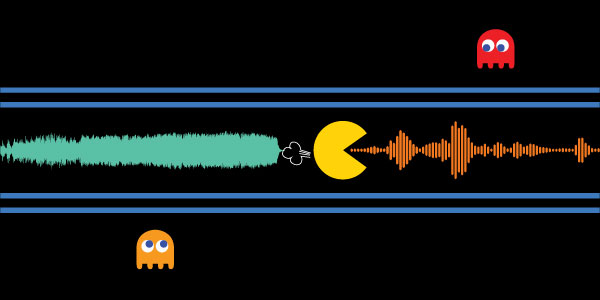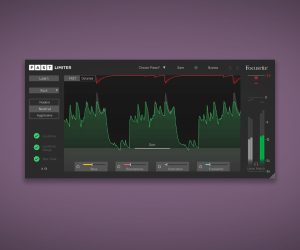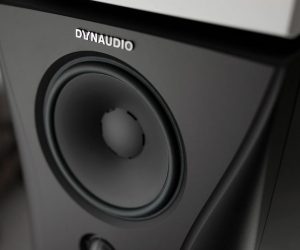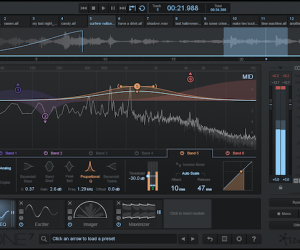
MASTERING WITH A MASTER ALGORITHM?

Column: Preshan John
Is mastering an art or a science? Bob Katz’s book suggests it’s a balance of the two, and if you’re going to take anyone’s word for it, it should be the man himself. Pro mastering engineers always seem to be one part creator, one part mathematician — with the ability to be artistic and experimental, while judiciously keeping within certain boundaries. To quote Katz, “mastering is the art of compromise.”
Computers rock at the scientific, mathematical stuff. They’ll do what you tell them to do; accurately and lightning fast. But software is not creative — it can’t make something out of nothing. It can’t feel emotion or react to it. People are still better at the touchy-feely stuff, which is why great music is made by people.
So what’s the deal with ‘algorithmic mastering’? It claims to provide high-quality mastering of your song with nothing more than ‘intelligent’ software. When sites like landr.com materialised, I, along with most of the audio community, wrote them off as bait for passionate, naive music creators eager to produce ‘radio-ready’ tracks without paying the local guy’s rate. We collectively scoffed at the notion that algorithmic mastering could interpret the same musical intent as a professional’s ear. It felt rather troubling to leave a song — a pure expression of human artistry and ability — in the virtual hands of a computer algorithm at the final stage of production.
With the level of technology around us today, it’s perfectly reasonable to assume a well-made software algorithm could analyse a music file and successfully alter it according to an experienced (software or mastering) engineer’s predefined parameters. Still it seems near impossible that software could make musically mature decisions in every scenario. Where a mastering engineer might say, ‘yep, it adds a nice tension leaving that violin part soft and stripped back before the big outro’, a mastering algorithm might be programmed with the response, ‘it’s gone really soft here — better turn that part up so it matches the rest of the song.’ While the algorithms may work fine 90% of the time, surely the effect is bound to be detrimental for some songs that don’t call for such a calculated approach.
Nevertheless, I was still keen to hear one of these algorithms in action.
MaximalSound.com is a new website offering instant online mastering services so I figured I may as well put it to the test. Three songs were submitted; one solo acoustic guitar, one acoustic song with percussion and a singer, and one full- band rock song. The mastered files I received back (about four minutes after uploading them) were commendably musical — better than I expected for sure. It was a pleasant surprise hearing a tasteful amount of dynamics in all three tracks. None were slammed to a rectangular waveform. Things got loud at the heat of the rock track, but there was no audible pumping or clipping. In other words, it got some way towards sounding like a decent mastering job.
Yet for discerning ears, not close enough. It was apparent that the algorithm treated all three tracks with similar sonic brushstrokes — scoop the mids, turn up the highs, and accentuate the lows. This smiley face curve worked for some tracks, but it made others sound shrill and hollow. Also sudden changes in a song’s dynamics seemed to ‘confuse’ the algorithm, resulting in audible level adjustments that weren’t always musical.
There are a couple of things you don’t get with algorithmic mastering.
Firstly, there’s no human interaction. Your song is injected into a website, processed, and discharged in a few minutes. The process is 100% impersonal.
You also don’t get to ask for changes. Mastering engineers I’ve worked with in the past have all been super accommodating when I request little tweaks. That doesn’t happen with algorithmic mastering; though maybe in future they’ll add a chat bot that will cop some constructive criticism.
So why would you choose to master your song with a cloud-based algorithm? Convenience is the selling point for me. If you’re just keen to share your track with the world as quickly as you can, attaining a decent master in a matter of minutes is probably worth the sub-$30 price. Or maybe you feel like a track you made — a musical sketch, or a demo with the band — doesn’t warrant a $150/ song mastering job, but you still want a finishing touch before loading it into your iTunes playlist. Algorithmic mastering fits the bill.
Speaking from the other end of my first experience with algorithmic mastering, I’m optimistic. It’s inevitable that, as technology progresses, so will the success rate of ‘virtual mastering engineer’ software. It’s unlikely I’ll submit my final mixes to a mastering algorithm anytime soon, but that’s because I feel like I have enough of a handle on bus EQ and limiting to get me by for any non-critical ‘mastering’ requirements. If you feel like you don’t have the chops, getting a computer to have a second listen might still be better than none.
















RESPONSES